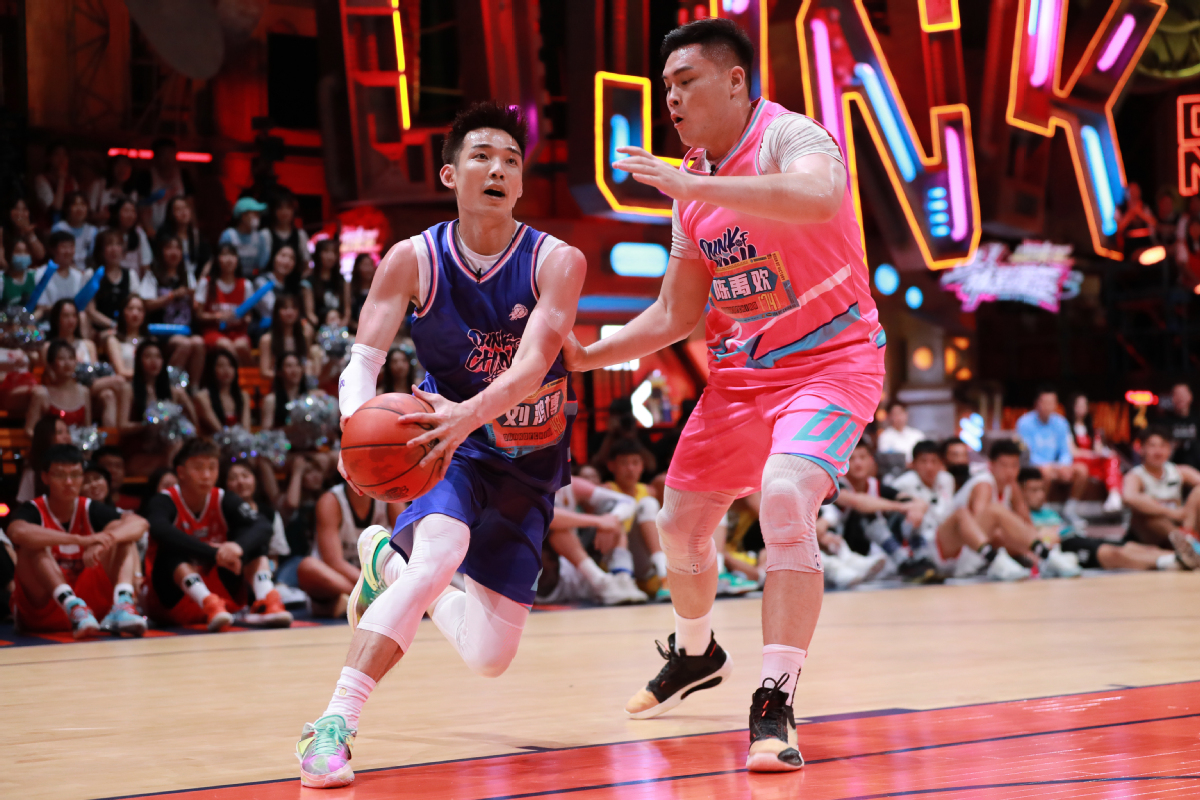 |
|
A scene from Dunk of China. [Photo provided to China Daily] |
TV tastes are fickle. Take the appearance of men, for example. Gone are the muscular, hairy or sweaty, macho guys of yesteryear, as many current variety shows tend to opt for androgenous young men sporting elaborate eye shadow and lip gloss. As they sing and dance on stage, they redefine the concept of male beauty and spark debate online. But, like fashion and music, even this trend is cyclical, eventually coming full circle - like say, a hoop. In the sense of the prevailing male aesthetic, the showbiz industry is changing rapidly.
Manliness is back. Sweaty, hairy chest-heaving, instruction-shouting, skill-displaying manliness has risen again. With the return of the hit sports franchise Dunk of China, which started its third season from Oct 17, the reality show has pulled audiences back to a more traditional sense of aesthetics, driven by viewers' need for testosterone-charged masculinity and exemplified by the participating athletes.
The latest season gathers four basketball celebrities, Wang Shipeng and Zhu Fangyu, now retired, but who once played alongside legend Yao Ming to propel Chinese men's basketball to its golden era in 2008, as well as current stars Zhou Qi and Guo Ailun, who are ranked among the most influential stars in the Chinese Basketball Association, or CBA.
Each of them serves as a coach to rally a team, made up of players shortlisted from about 18,000 professionals, student-athletes and amateur enthusiasts from home and abroad.
After a series of games between different teams, the show will see the birth of a champion team consisting of up to 16 players.
In an attempt to add a new slant, this season also invites actor Deng Lun as the show's "manager" and young female singers Chen Xinwei, Jin Zihan, Nineone and Xu Yiyang to serve as the four teams' cheerleaders, to help the coaches encourage their players.
For director-producer Peng Zhengyuan, who has helmed the franchise since last year's second season, Dunk of China indicates a trending change in China's entertainment industry.